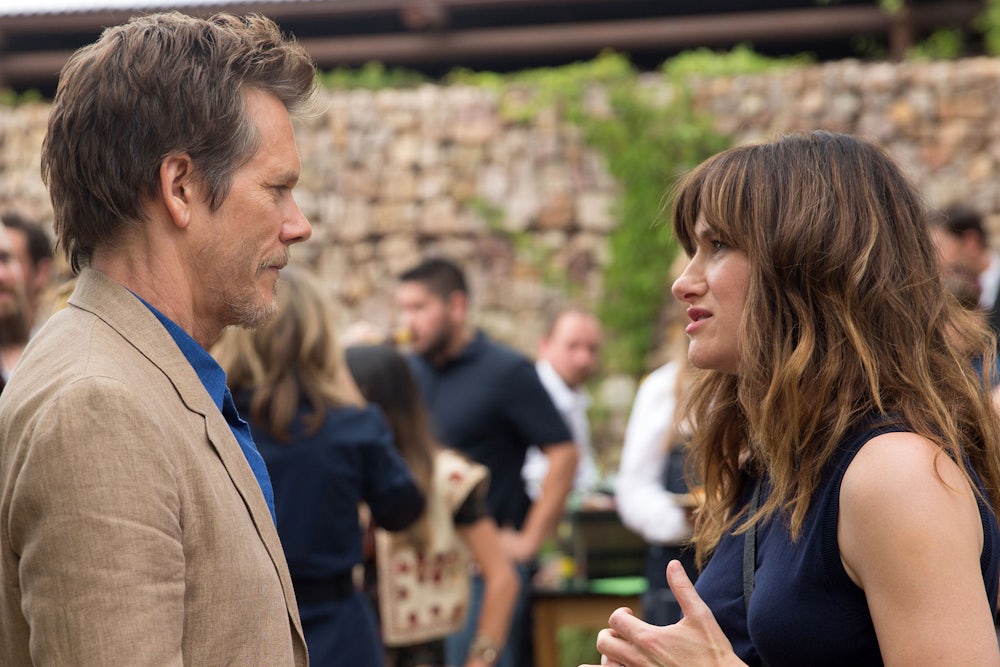If you’ve ever dated someone more accomplished, more ambitious, or even just older than you, then you’ve likely experienced something that a friend of mine once called “getting wifed.” Getting wifed is what happens when you’re out at a party or a reading, and someone comes up to speak to your more accomplished or more ambitious partner. You’re introduced: “This is my girlfriend, Moira.” “Hi,” the person says, and their eyes flash to you so quickly that it feels less like a greeting than a punctuation mark. They then turn back to your partner, and you won’t be addressed for the rest of their conversation. I’ve mentioned the phenomenon of getting wifed to a number of people—gay, straight, men, women. No man has ever told me that he’s experienced it. Many don’t even seem to know what I’m talking about.
There are a lot of indignities to being a woman, and many of them are structural, material, like sexual harassment or the wage gap—major injustices with consequences that are easy to understand. But then there are smaller things, like getting wifed—things that aren’t so much a quantifiably unfair as they are just tiny, humiliating reminders that people are not accustomed to considering you fully human. The cumulative effect of these gestures can be maddening. This is what Chris Kraus’s 1997 novel I Love Dick is about.
The book is an autobiographical account of the obsessive love that the narrator, Chris—a writer and failed filmmaker in a waning marriage—feels for Dick, an academic and art world denizen whose principal attribute is his indifference to her. Chris’s love letters to Dick become meditations upon female subjectivity and its punishments, as the suffering that Chris feels in her unrequited love increasingly becomes indistinguishable from art practice itself. In the nearly twenty years since it was published, I Love Dick has become a cult hit, and is periodically rediscovered by young women in early adulthood, as they age out of credulousness and into critical understandings of women’s position in the world. And so fans were thrilled when it was announced earlier this year that Jill Soloway, the creator of the beloved Amazon series Transparent, was slated to adapt the novel into a new series.
The pilot episode, released this week, makes some changes: Instead of the novel’s California, the show opens in Marfa, Texas, where Chris’s husband, Sylvère, has been awarded a fellowship. The time has been updated from the nineties to the present day, so everyone has a smart phone and people talk about Uber. Chris is played by Kathryn Hahn, who adds her own charm to Soloway’s preferred mode of brassy, neurotic dialogue. Dick, in turn, is portrayed by Kevin Bacon, who is skinny in a masculine way that makes him seem rugged, and spends a lot of his screen time throwing smoldering stares at the camera and exhaling through his nostrils with pointed, misogynist disdain.
When they first meet, at a party where Chris has been repeatedly wifed, he is sitting alone, apart from the action—even though, in the surrounding clusters of artists and writers clutching their wine glasses, he seems to be the only thing that anyone is talking about. When Chris introduces herself, he pauses twice within the space of a minute to sensuously re-light his cigarette. It’s a distracting tick—how is somebody supposed to come off as sexy if they can’t even remember to take a drag?—but the exaggeration of his masculinity is part of the joke. Later, when she is getting dressed for a dinner with Dick and Sylvère, Chris repeatedly tries on and rejects different outfits before a mirror, like a teenager declaring that she has nothing to wear.
I read I Love Dick twice in my early twenties—that’s the time to read it—but it’s only in Soloway’s telling that I’ve realized the importance of Dick’s cruelty to the story. At dinner, Dick is arrogant and condescending, telling Chris that women don’t make good art because they have to write from “behind their oppression.” The assumption that underlies this and other dismissals of identity-based art is that the human condition is located somewhere else, somewhere other than from “behind” the oppressions that most of humanity endures. It’s her rage at this idea that animates Chris, prompting her into a creative state that’s as enmeshed with her attraction to Dick as her resentment is with her desire to impress him. She and Sylvère fuck on a couch when he finds her writing a letter to Dick, and in the morning she wears a thrilled, almost unbelieving look as she prints the letter out and prepares to actually send it.
The show ends with Dick waking up that same morning, alone in his austere ranch house. He spends a few minutes doing manly things, like walking in front of a bedside table with an empty bottle of tequila on it, and rolling another cigarette on his front porch. Then he walks out to his pool for a morning swim. The last shot includes a scenic view of Kevin Bacon’s bare ass standing at the edge of the pool before a Texas desert vista. Then he jumps in and sinks under.
